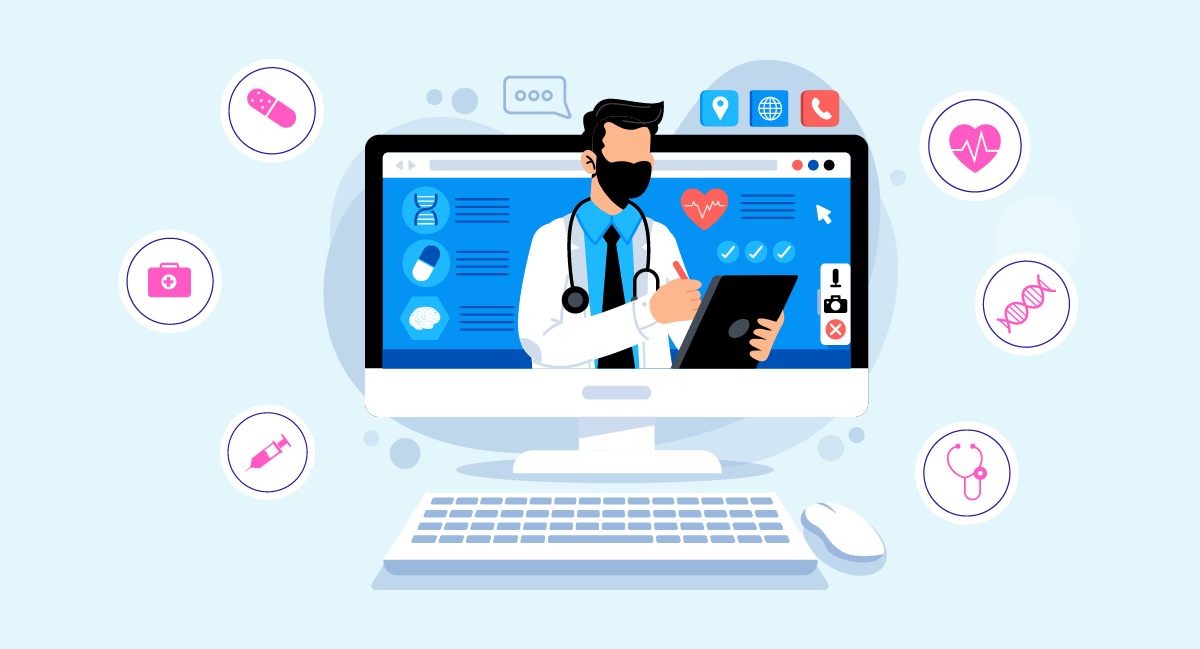
The Hospital CRM project is a comprehensive web-based solution designed to streamline patient management, improve communication between healthcare providers and patients, and enhance overall healthcare service delivery. Built using PHP and the CodeIgniter framework, this CRM system addresses the specific needs of hospitals and clinics by offering an efficient platform for managing appointments, medical records, patient interactions, and more.
Technologies Used
Frontend:
- HTML5
- CSS3
- JavaScript
- Bootstrap for responsive design.
Backend:
- PHP
- CodeIgniter framework
- MySQL for database management.
APIs:
REST APIs for third-party system integrations (e.g., lab reports, billing).
Security:
Data encryption, secure login with role-based access control.
Key Features & Contributions:
1. Patient Management System:
- Developed a robust patient management module that enables the hospital staff to easily manage patient records, including medical history, treatment plans, and progress notes.
- Integrated a patient registration system with unique patient IDs for tracking and retrieving patient data efficiently.
- Implemented appointment scheduling, allowing patients to book appointments online and receive reminders through email or SMS notifications.
2. Doctor and Staff Management:
- Created a management system for hospital staff and doctors, where they can view their daily schedules, manage patient visits, and update medical records.
- Developed a real-time calendar view for doctors to manage their availability, and integrate with appointment scheduling for automated time slot management.
3. Electronic Medical Records (EMR):
- Designed a secure EMR system that stores and retrieves patient medical records, lab reports, prescriptions, and diagnoses, accessible to doctors and authorized staff.
- Implemented user-friendly forms for recording patient visits, consultations, and treatment details.
4.Patient-Doctor Communication Portal:
- Integrated a secure messaging system that allows patients and healthcare providers to communicate directly through the CRM. This feature enhances patient engagement and improves follow-up care.
- Enabled automated notifications and reminders for appointments, test results, and medication reminders.
5. Billing and Payment Integration:
- Integrated a billing module for generating invoices for patient services, including consultations, lab tests, and procedures.
- Developed payment gateway integration for online payments, allowing patients to settle bills via secure transactions.
6. Data Analytics and Reporting:
- Created a comprehensive reporting system that provides insights into hospital operations, patient demographics, and healthcare service efficiency.
- Built customizable dashboards for hospital administrators to monitor key performance indicators (KPIs) such as patient flow, appointment statistics, and financial summaries.
7. Role-Based Access Control (RBAC):
- Implemented a robust security system with role-based access control to ensure that sensitive medical data is only accessible to authorized personnel (e.g., doctors, nurses, and admin staff).
- Enforced strong password policies, two-factor authentication, and data encryption for secure handling of patient information.
8. Mobile-Friendly and Responsive Design:
- Developed a responsive web interface using Bootstrap to ensure that the CRM can be accessed seamlessly on mobile devices, allowing hospital staff and patients to use the system on the go.
Challenges Overcome
- Data Privacy and Security: Given the sensitivity of patient data, ensuring HIPAA-compliant security measures was a priority. I used encryption techniques and secure coding practices to protect patient records from unauthorized access.
- Integration with Third-Party Systems:Integrating the CRM with external systems such as lab information systems (LIS) and payment gateways required careful handling of API requests and response formats. I successfully managed the seamless flow of data between systems.
The Hospital CRM system has significantly improved the efficiency of hospital operations by automating various administrative tasks, enhancing patient care, and improving communication between doctors and patients. The scalable architecture ensures that the platform can be expanded to include additional hospitals or healthcare centers, making it a versatile solution for the healthcare industry.
